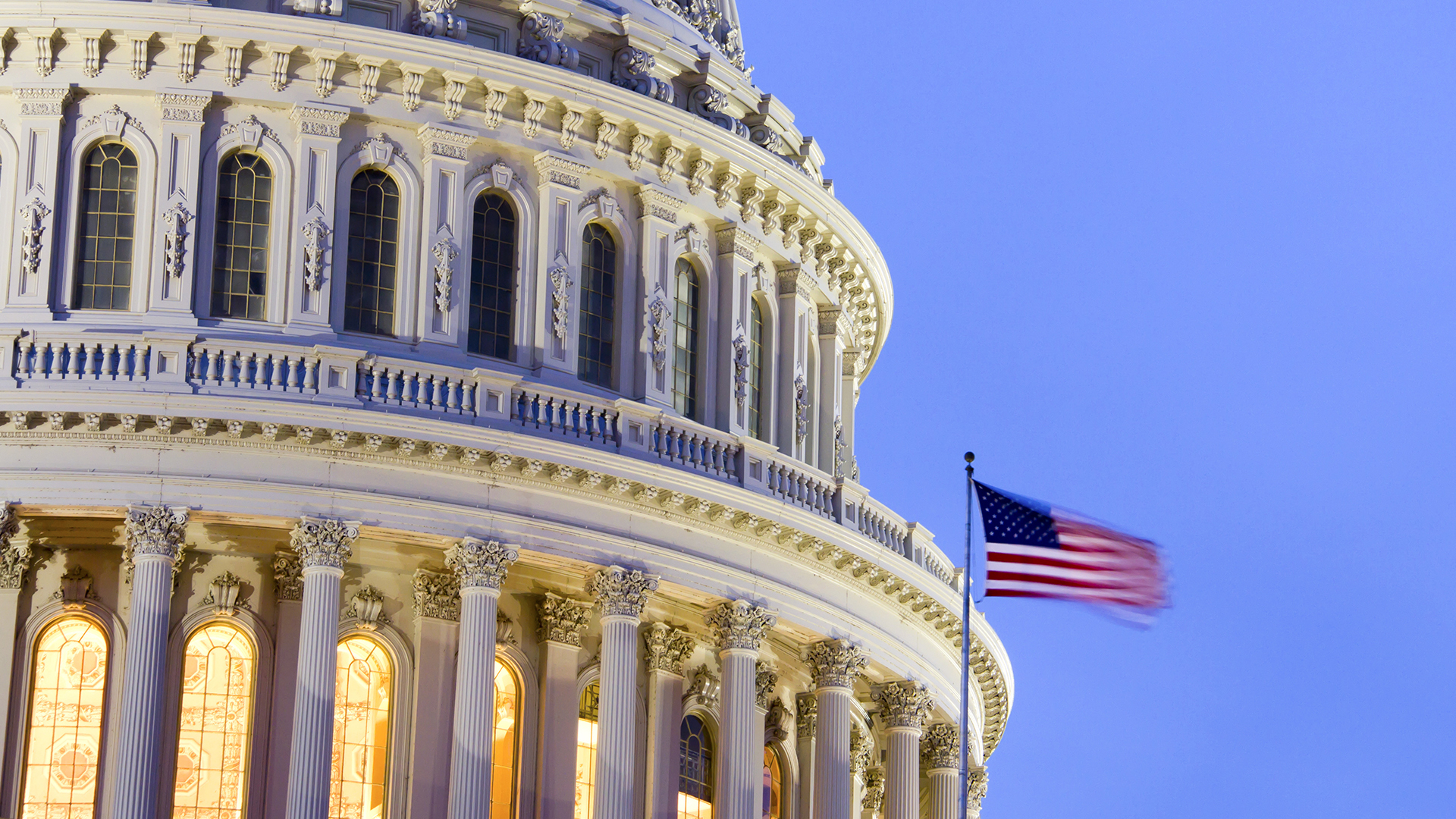Senior management and boards are increasingly acknowledging the threat of financial crime as a critical risk to their business that must be addressed. This has been exacerbated in the last 12 months through the impact of the pandemic as well as rising domestic and international tensions. Our financial crime compliance specialists, located in the UK, US, Canada, Australia and Asia, are looking ahead to 2021 to identify the incoming legislative changes, growing role of technology and the need for an effective regulatory response. This forms part of a seven part series which will assess amongst other things the expansion of virtual currencies, the growth of the role of the money laundering reporting officer, the changing world of sanctions regimes, and how the Biden Presidency could shape financial crime compliance into the future.
Introduction
Tackling money laundering and terrorist financing has been a persistent issue for US presidents, particularly following events such as the September 11, 2001, attacks on the US and a global drive to adopt high and consistent standards across the US, Europe and Asia. Resultantly, over the last decade the US has made considerable updates to its anti-money laundering (AML) and counter terrorist financing (CTF) frameworks. The most recent of these is the “Anti-Money Laundering Act of 2020” (AMLA), housed within the National Defense Authorization Act (NDAA), which became law on 1 January 2021. Later that month, this legislation was inherited by President Biden from the previous Trump Administration, alongside a wealth of Executive Orders governing the US’s sanctions agenda.
This article will focus on five key changes brought about by the AMLA, and considerations relating to the implications of changes made by the Biden Administration to the US’s sanctions framework can be found here.
Key change 1: registration of beneficial ownership
The AMLA introduced new company registration requirements with respect to beneficial ownership, which demonstrates closer alignment to the model deployed in Europe under the 4th and 5th AML Directives. These new requirements should assist banks and certain other financial institutions in their current AML obligations to obtain beneficial ownership information as part of their customer identification program for individuals which own 25% or more of the customer or individuals with the power to exercise significant control over the customer (e.g. the chief executive officer). These requirements sometimes are met by some resistance, whereby customers do not want to indicate a specific individual and/or are hesitant to provide the level of information needed, especially when ownership structures are complex and/or involve multiple intermediaries.
Under the new requirement, nonpublic companies will be required to report their beneficial owners to the Financial Crimes Enforcement Network (FinCEN), the US AML agency, and a division of the US Treasury Department. This also replicates Europe’s beneficial ownership registry standards, but is a distinct change from the previous US operating environment whereby previously it has been a challenge to obtain beneficial information regarding non-public companies formed at the US state level. The AMLA defines parameters which govern which corporations must report, including:
- Specifically which types of corporations are required to report;
- The beneficial ownership information which must be included in the report;
- Provisions to ensure the information reported remains confidential – it cannot be disclosed unless otherwise permitted by the legislation or accompanying regulations established by FinCEN; and
- Provisions with respect to the security of the information reported (such as encryption) to prevent it being tampered with and/or inadvertently leaked.
These beneficial ownership disclosure changes aim to bring enhanced transparency to the (US) financial system and ultimately demonstrate the US’s support of the global fight against financial crime. However, adhering to these new provisions are likely to require significant operational enhancements and also seismic culture shifts to educate financial institution staff and customers alike as to the risk management enhancements brought about by these stricter measures.
Key change 2: obtaining foreign bank records
Another section of AMLA revises and expands existing provisions allowing US government agencies to obtain records from non-US (“foreign”) banks which maintain correspondent accounts in the US.
As revised, the US Secretary of the Treasury or the Attorney General may now issue a subpoena to such banks which are the subject of an investigation of US criminal/certain AML laws or a civil forfeiture action and “request any records relating to the correspondent account or any account at the foreign bank, including records maintained outside of the United States”.
Previously, this was limited to only seeking information related to the foreign bank’s US correspondent account, whereas now it may include information on any account at the foreign bank, even if the records are held outside the US. If the foreign bank fails to provide the records:
- The Attorney General may apply for an order to compel production; and/or
- The Treasury Secretary and Attorney General can order the US bank to terminate its correspondent relationship with the foreign bank.
This change extends the reach of the US regulatory jurisdiction over correspondent banking relationships with US banks. Both US and non-US financial institutions therefore need to be aware of these changes, their obligations and consider the course action in the event there is a request to disclose records.
Key change 3: international cooperation and coordination
The AMLA contains new and expanded international AML cooperation and coordination measures. For example:
- The US Secretary of the Treasury is specifically charged to work with her counterparts at international institutions (such as the United Nations and the Financial Action Task Force) “to promote stronger frameworks and enforcement of laws” pertaining to AML; international cooperation already exists, on AML and myriad other issues, but this charge is contained in the statute, perhaps to underscore the importance of continuing such cooperation and
- The AMLA also establishes Treasury Financial Attaché and Foreign Financial Intelligence Unit Liaison programs to deploy US personnel in third countries to assist in developing and executing the furthering of US economic and financial policy in the international fight against financial crime.
White collar criminals often operate complex multi-jurisdictional networks, thus this change aims to foster better collaboration between national financial intelligence units (FIUs) to facilitate gaining a more holistic view of transactional and customer activity.
Key change 4: whistleblower protections
The AMLA also updates the US’s existing AML whistleblower program. The definition of who can be classified as a whistleblower itself has been expanded – a whistleblower can be defined as anyone who reports a violation, including those who report violations “as part of their job duties” (including compliance officers, auditors or attorneys).
In addition, amendments have been made to the awards protocols for successful whistleblowing cases. For example:
- The reward for whistleblowing which leads to a successful enforcement action under US AML laws resulting in monetary sanctions over $1 million was previously capped at $150,000. It is now up to 30% of the monetary sanctions imposed; and
- There is now no set minimum award for successful whistleblowers – the amount is decided at the Secretary of the Treasury’s discretion (taking into considerations concepts including the significance of the information provided by the whistleblower, the degree of assistance provided by the whistleblower and the magnitude/materiality of the information disclosed)
Finally, retaliation against a whistleblower is now specifically prohibited (such as discharging, demoting, suspending, threatening, blacklisting and harassing an employee. Previously it had not been mentioned in the statute.
These revised whistleblowing provisions are intended to continue to encourage a positive compliance culture, based on strong risk management and “doing the right thing” with regards to the global fight against financial crime. As well as in the US, measures supporting those working in the financial services sector to speak-up about wrong doing and poor practices have also been replicated in other geographies, such as the UK Financial Conduct Authority’s (FCA’s) March 2021 “In confidence, with confidence” campaign.
Key change 5: dealers in antiquities
Finally, demonstrating alignment to the EU 5th AML Directive, the AMLA expands the scope of AML regulated financial institutions to those persons engaged in the trade of antiquities, including an advisor, consultant, or any other person who engages as a business in the solicitation or the sale of antiquities.
This means that by the end of the year the Secretary of the Treasury is required to issue proposed regulations imposing AML compliance provisions on antiquities dealers.
The rulemaking process requires that proposed regulations are issued first for industry and public comment before finalizing the regulations. Thus, until the Treasury Department has published proposed regulations there are a number of attributes relating to this new regulation which are currently unknown, such as:
- There are a number of terms which need to be defined by the Treasury Secretary, which could further expand or contract the scope of this legislation. For example, there is currently a lack of clarity around what constitutes an “antiquities dealer”;
- It has not yet been confirmed specifically which compliance responsibilities will be imposed on new in-scope businesses. It is anticipated that at a minimum the requirement to establish and maintain an AML compliance program and appointing an AML compliance officer will be imposed; and
- These minimum requirements may be extended, such as requiring reporting of suspicious transactions.
Concluding remarks
The Treasury Department has a wealth of new legislation to bring into force in 2021, and that is just with respect to the AML space. Substantial changes in the sanctions space are also incoming in unison (emanating from the US and other jurisdictions – see here for more information), and thus market participants need to remain alert and engage in proactive horizon scanning. The new provisions of the AMLA clearly denote a continued emphasis from US regulators on the need for strong and effective compliance programs and, whilst these shifts may be an initial shock to the system, financial intuitions will need to continue to upskill in order to remain compliant.
It may be possible for the US to learn lessons from other jurisdictions, especially with respect to protocols around registration of new companies, which are now progressing towards converging global standards. It will be vital for jurisdictions to collaborate and learn from each other, such as in the contexts of whistleblowing, disclosure requests and information sharing, to truly reap the global benefits of national and international AML framework enhancements.







